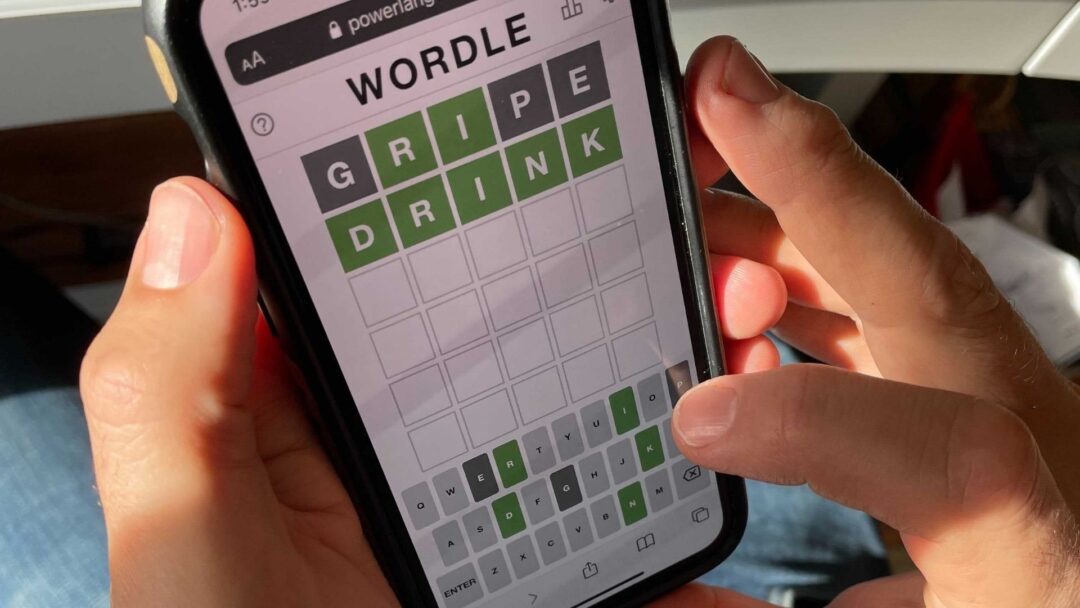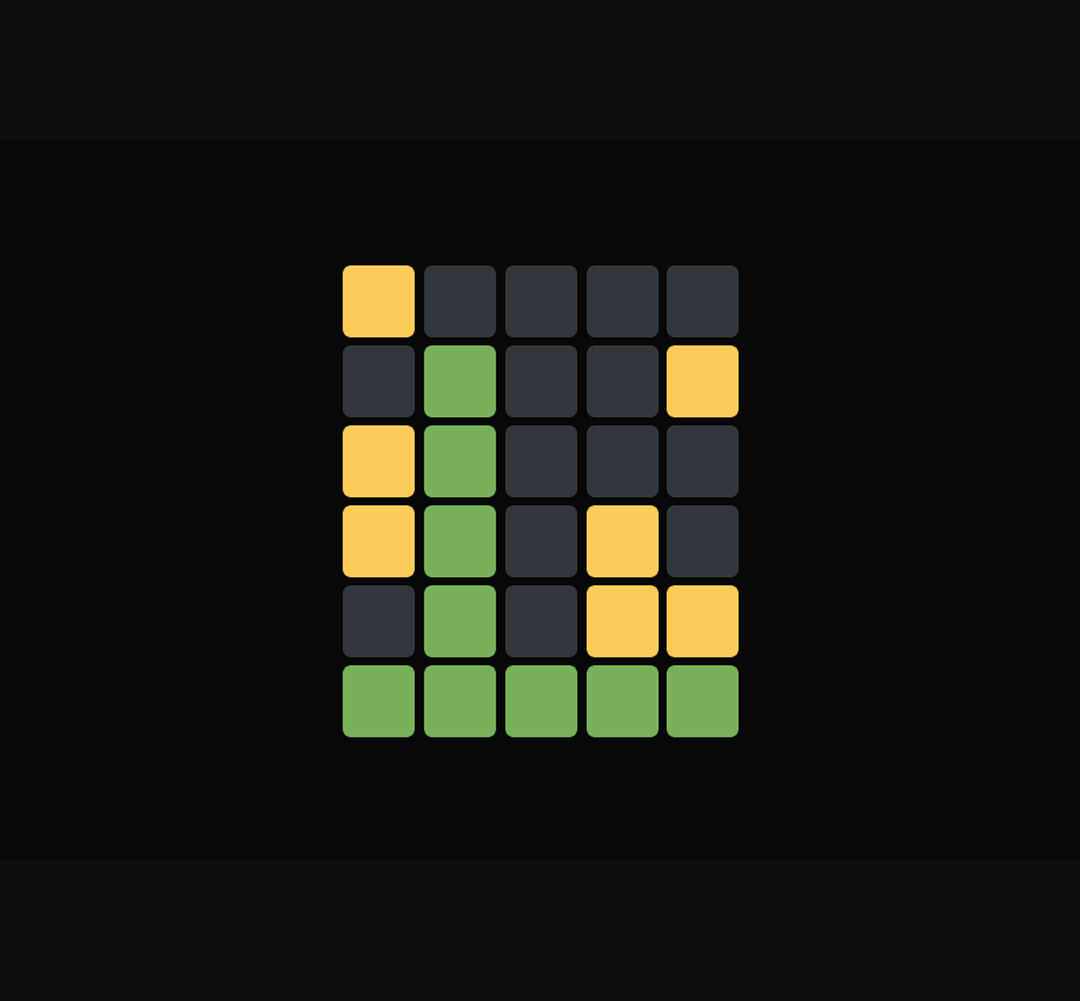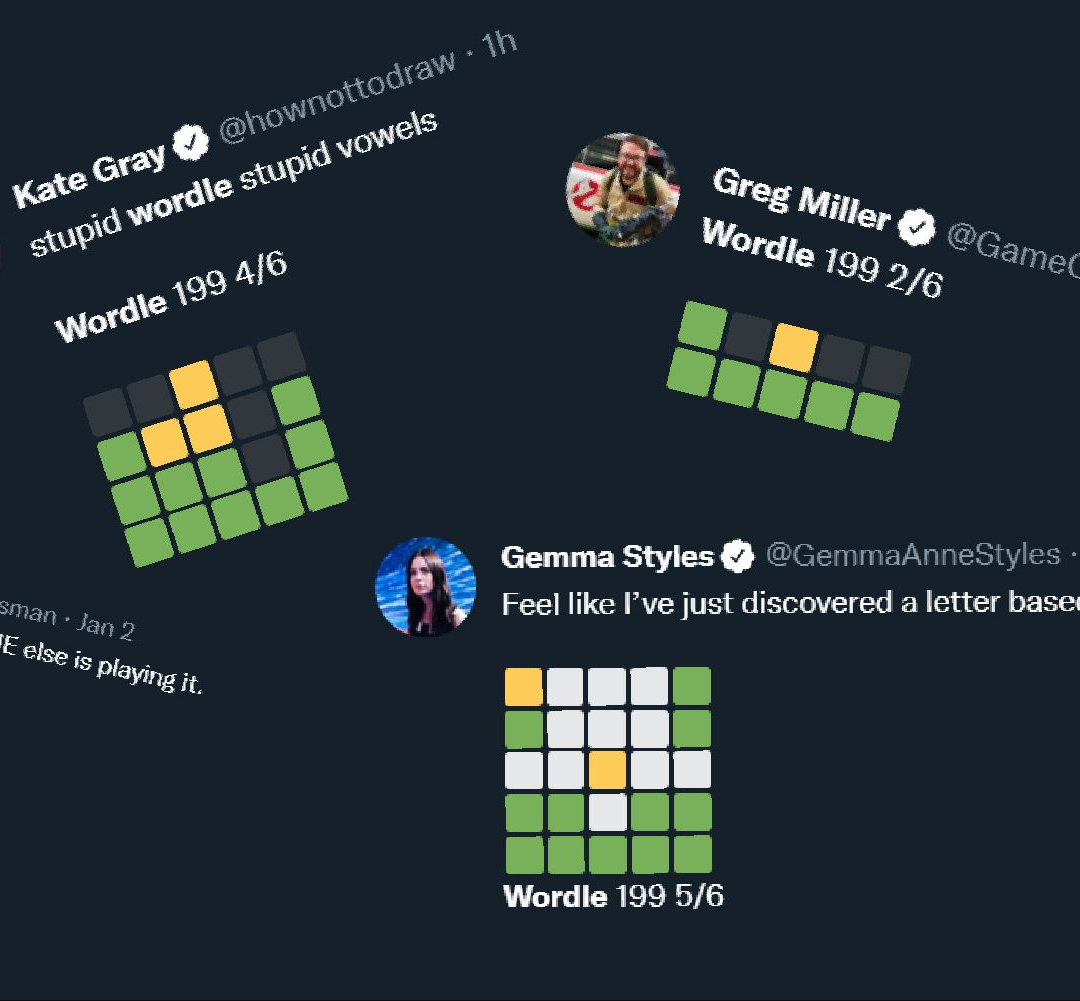Wordle: the game that’s taken over the World-le
You’ve seen the green, yellow and black squares on your social media feeds. You’ve overheard your colleagues talking about it around the water cooler. You’ve probably even seen someone playing the game on their phone whilst out and about.
Introducing… Wordle! Most of you probably didn’t need an introduction, but there’s always a few who lag behind current trends. So, for those who are already well-versed with the game that’s taken the world by storm, bear with us while we go through a few formalities for those who aren’t.
Yes, you’re right, I’m a bit slow. What is Wordle?
Wordle is a free word game where your mission is to guess a five-letter word in six tries or less. After each guess, the tiles change colours. Green tiles mean it’s the right letter in the right spot, yellow tiles mean the letter is in the wrong spot but features somewhere in the word and grey means the letter isn’t in the word at all.
Simple? Yes. Difficult? Sometimes. Frustrating? If you don’t guess the word, most definitely.
The word is the same each day for everyone around the world and you can only play once per day. If you don’t guess the word in your first six attempts, tough luck.
How did Wordle start?
The game was founded by a guy named Josh Wardle (note: Wardle – not Wordle), a software engineer who created the website for his word-game-loving girlfriend during lockdown.
Starting off as a game just between the two of them, it has since gone viral around the globe; The Guardian reports that daily participants have risen from 90 in November 2021, to a stunning 2M in January 2022.
The popularity of the game became so immense that the New York Times, the world’s largest publication, purchased the game for at least $1,000,000 in early February.

Lessons that marketers can take from the Wordle craze
There are two types of people in the world: those who play Wordle and those who hate people who play Wordle, and I’m not going to lie… I used to be one of the latter. ‘I don’t care what your Wordle score is!’ is what I’d shout at my phone whenever I saw another post on social media consisting of those annoying green, black and yellow squares.
In the end, it got to a stage where people posting about Wordle annoyed me so much that I decided to Google it and play one game of it, just so that I could justify my hate for it and confirm in my mind how stupid it was.
But then something happened that would go on to change my life forever – I guessed the damn word on my second attempt. Whether it was just pure luck or whether the Wordle gods were just looking down on me that day, I’ll never know. But one thing was for sure: I was instantly hooked.
Since that fateful moment, I’ve played Wordle every day and have managed to solve it every time. It’s even become a daily topic of conversation in the office between my co-workers and I as we share our scores and rejoice at the suffering of those who are struggling to complete it.
How could this be? How could a game I’d despised so much – admittedly without having even played it – have hooked me in a matter of minutes?
I needed to know, so along with some soul searching I did some investigating, and learned a few lessons as to what exactly has made Wordle so popular. And, as it turns out, these lessons are ones that marketers and business owners alike can apply to their own work.
1. The visuals are distinct
Yes, those annoying green, yellow and black squares rear their ugly, albeit effective, heads again. As I described earlier, the colour of the squares represent whether the letters you have guessed are in the word and whether they’re in the correct spot. They also represent a big part of the reason why Wordle’s popularity has spread so fast.
The squares are so simple, so distinct and, once you figure out what they actually mean, so meaningful. As the daily word is the same for everyone, you can also quickly and easily compare your results to someone else’s. Although I never share my own results on social media, posting the squares has almost become a marker of Wordle membership through a visual code of emojis. Very cool.


2. It’s extremely shareable
It could be argued that without the ability to share your Wordle score in the form of those little squares, the game wouldn’t have become the global craze it is today. Seeing the squares on social media was my first ‘encounter’ with the game, as it likely was yours. It’s also incredibly easy to share your score; one click to copy your results, one click to paste it and you’re done. And even though I’ve never shared my score and probably never will, I understand why people do.
3. It’s simple enough while presenting enough of a challenge
Disclaimer: the game itself is simple, but sometimes the words are far from it and require a great deal of brain power. However, as there’s only one word released every 24 hours, there’s no danger of wasting your day on it, and for a lot of people it’s become somewhat of a pleasant daily ritual. The difficulty obviously depends on the word and the letters you guess, but most words (caulk?) are commonly known by most English speakers.


4. It’s fun, with an element of ego and competition
Despite some days being overwhelmingly frustrating, there’s no doubt this game is fun. Social media challenges are often successful because they feed into our narcissism, and with Wordle providing an instant analysis of your guess distribution as well as the ability to share your results to social media to boast about how well you did, it’s hard not to subtly compare yourself to everyone else.
5. Most importantly, it isn’t trying to take our money
The majority of today’s marketing and advertising is all about generating sales and making money, so discovering something so entertaining that was made purely for our enjoyment is a much-needed refreshing change. Developer Josh Wardle made the game as a passion project for his partner and has explicitly said he doesn’t want to make money out of it – however as it turns out, the New York Times did buy it off him for an undisclosed price in the low-seven figures, so it’s a win-win for everyone.
